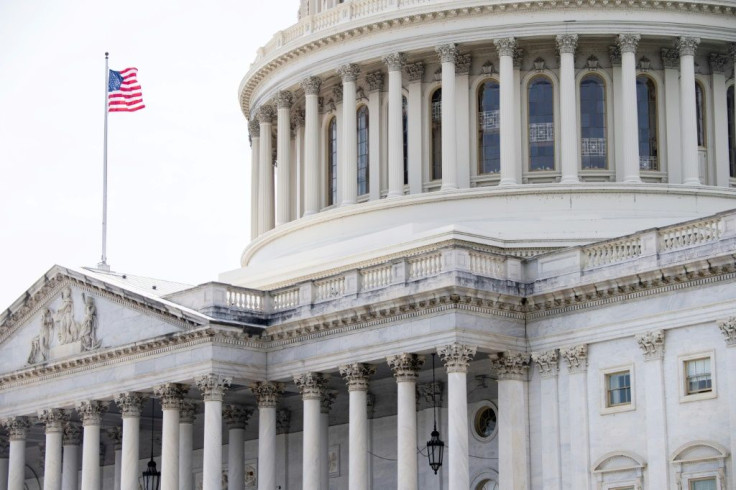US Democrats Agree On $3.5 Trillion Budget Target
Top US Senate Democrats agreed late Tuesday on a $3.5 trillion package to implement President Joe Biden's vast plans to fund climate initiatives, health insurance and human infrastructure programs like child care, social welfare and housing.
The huge proposal would direct federal funds to a sweeping array of projects over the coming decade that Biden has outlined as his top priorities but which have encountered fierce pushback from opposition Republicans.
All 11 Democrats on the Senate Budget Committee emerged from an evening meeting with Senate Majority Leader Chuck Schumer to announce they had decided on a budget number.
"Tonight the Senate Budget Committee reached an agreement on a fully paid-for $3.5T topline budget which includes funding for climate, education, Medicare expansion, family programs, and more," Senator Mark Warner said on Twitter.
Schumer added to reporters: "Every major program that President Biden has asked us for is funded in a robust way."
The Democrats' aim is to turn the agreement into a budget resolution that, if it is able to clear both chambers of Congress, would allow lawmakers to enact the massive spending legislation without assistance from Republicans.
A budget resolution allows the Democrats who narrowly control the Senate to circumvent filibuster blocking tactics that otherwise require 60 votes to overcome in the 100-seat chamber, rather than a simple majority.

Democrats used the same procedural move in March to pass Biden's $1.9 trillion pandemic relief package.
The agreement followed weeks of haggling between the White House, party leaders, progressives and moderates to make a once-in-a-generation investment in the United States.
Details about the sweeping plan, which Democrats argue is among the largest such funding efforts in decades, were not released.
The Democratic blueprint also comes as lawmakers put the finishing touches on a nearly $1 trillion bipartisan deal focusing on more traditional infrastructure like roads, bridges and ports.
Lawmakers have scrambled to finalize the bipartisan deal -- and the larger Democratic measure that is on a parallel track -- in the coming weeks before Congress breaks for the summer.
But Republicans made clear Tuesday they were not impressed with the latest Democratic plan.
"$3.5 trillion in new spending is $3.5 trillion too much and $3.5 trillion we don't have," Senator Mike Lee said.
© Copyright AFP 2024. All rights reserved.





















